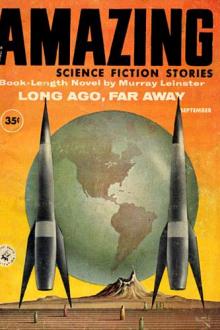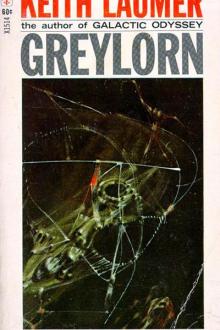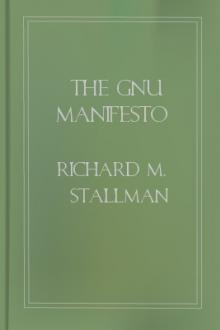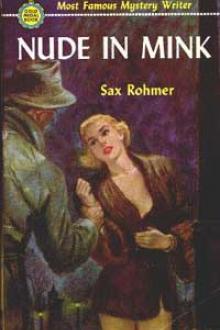Genre Other. Page - 327

ad all the way is like a circus," the young soldier observed, "and there isn't a thing to be seen when you get there. The naval airmen were all over the place at daybreak, and Captain Griffiths wasn't far behind them. You didn't leave much for the sightseers, sir," he concluded, turning to his neighbour.
"As Commandant of the place," Captain Griffiths replied, "I naturally had to have the Common searched. With the exception of the observation car, however, I think that I am betraying no confidences in telling you that we discovered nothing of interest."
"Do you suppose that the Zeppelin was in difficulties, as she was flying so low?" Helen enquired.
"It is a perfectly reasonable hypothesis," the Commandant assented. "Two patrol boats were sent out early this morning, in search of her. An old man whom I saw at Waburne declares that she passed like a long, black cloud, just over his head, and that he was almost deafened by the noise of the engines. Personally, I cannot believe that they wou

to a low birth rate. Now, supplied with great quantities of iron by their unremitting industry, they were moved to prodigies of multiplication.
The chairman of the Dail Committee on the Condition of the Planet Eire had spoken of them scornfully as equal to mice. They were much worse. The planetary government needed at least a pied piper or two, but it tried other measures. It imported cats. Descendants of the felines of Earth still survived, but one had only to look at their frustrated, neurotic expressions to know that they were failures. The government set traps. The dinies ate their springs and metal parts. It offered bounties for dead dinies. But the supply of dinies was inexhaustible, and the supply of money was not. It had to be stopped.
Then upon the spaceport of Eire a certain Captain Patrick Brannicut, of Boston, Earth, descended. It was his second visit to Eire. On the first he'd learned of the trouble. On his second he brought what still seemed the most probable solution. He landed ei

ding. Speaking into an audioscriber, a machine that transmitted his spoken words into typescript, he repeated the names of the candidates as they passed.
"Cadet Candidate Tom Corbett," announced Tom, and Herbert repeated it into the audioscriber.
"Cadet Candidate Astro!" The big Venusian stepped forward.
"What's the rest of it, Mister?" inquired Herbert.
"That's all. Just Astro."
"No other names?"
"No, sir," replied Astro. "You see--"
"You don't say 'sir' to a senior cadet, Mister. And we're not interested in why you have only one name!" Herbert snapped.
"Yes, sir--uhh--Mister." Astro flushed and joined Tom.
"Cadet Candidate Philip Morgan," announced the next boy.
Herbert repeated the name into the machine, then announced, "Cadet Candidates Tom Corbett, Astro, and Philip Morgan assigned to Section 42-D."
Turning to the three boys, he indicated the spiraling slidestairs. "Forty-second floor. You'll find Section D in the starboard wing

magining that, I'm right there with you."
He went back to the main building to get Gail and Captain Moggs. They went out to the 'copter hangar together.
"I've talked to the radar and loran operator," said Soames. "I explained that you wanted to see some crevasses from the air, and I'd be wandering around looking for them on the way to the rookery. He will check on us every fifteen minutes, anyhow."
* * * * *
The 'copter went up the long, sloping, bulldozed snow-ramp. Soames checked his radio contact. He nodded. The engines hummed and roared and bellowed, and the ship lifted deliberately and floated away over the icy waste.
The little helicopter was very much alone above a landscape which had never known a growing thing.
Soames kept in radar contact and when he was ready he told the base, "I'm going down now, hunting crevasses."
He let the 'copter descend. The waste was featureless, then and for a seemingly interminable time afterward. Then his estimated positio

apsed since his death, and yet his ideas, doctrines and teachings are still quoted and accepted without any apparent diminution of their influence. Cicero had in mind an exact prototype of Jefferson when he said, "Homines ad deos nulla re propius accedunt quam salutem hominibus dando."[1]
[1] There is no way by which man can approach nearer to the gods than by contributing to the welfare of their fellow creatures.
Authentic history shows a persistent tendency of the Anglo-Saxon race in the unswerving direction of personal liberty. The inhabitants of the American Colonies revealed a tenacity and self-assertiveness in this direction to a greater extent than had ever been shown in England. The Jeffersonian idea has ever been that there shall be no king; that the sovereign ruler should be placed on the same level and be judged by the same principles as the humblest citizen; that the lords of the manors are entitled to no more privileges than the poorest peasant; that these rights are inalie

a few weeks before, but the idea had spread through the crew like wildfire. Now, I couldn't afford drastic action, or risk forcing a blowup by arresting ringleaders. I had to baby the situation along with an easy hand and hope for good news from the Survey Section. A likely find now would save us.
There was still every reason to hope for success in our search. To date all had gone according to plan. We had followed the route of Omega as far as it had been charted, and then gone on, studying the stars ahead for evidence of planets. We had made our first finds early in the fourth year of the voyage. It had been a long tedious time since then of study and observation, eliminating one world after another as too massive, too cold, too close to a blazing primary, too small to hold an atmosphere. In all we had discovered twelve planets, of four suns. Only one had looked good enough for close observation. We had moved in to televideo range before realizing it was an all-sea world.
Now we had five new m

hors at length in works of non-fiction. This practice was useful, and is the only way many authors' works have survived even in part. The copyright system was created expressly for the purpose of encouraging authorship. In the domain for which it was invented--books, which could be copied economically only on a printing press--it did little harm, and did not obstruct most of the individuals who read the books.
All intellectual property rights are just licenses granted by society because it was thought, rightly or wrongly, that society as a whole would benefit by granting them. But in any particular situation, we have to ask: are we really better off granting such license? What kind of act are we licensing a person to do?
The case of programs today is very different from that of books a hundred years ago. The fact that the easiest way to copy a program is from one neighbor to another, the fact that a program has both source code and object code which are distinct, and the fact that a program is used ra

new trail had not been noticed. It ran deep and well marked through the heavy brush of a gully to a place where the brush commenced to thin, and there it branched into a dozen dim trails that joined and blended with the old, well worn cattle paths of the hillside.
"Somebody's might foxy," observed the man; "but I don't see what it's all about. The days of cattle runners and bandits are over."
"Just imagine!" exclaimed the girl. "A real mystery in our lazy, old hills!"
The man rode in silence and in thought. A herd of pure-bred Herefords, whose value would have ransomed half the crowned heads remaining in Europe, grazed in the several pastures that ran far back into those hills; and back there somewhere that trail led, but for what purpose? No good purpose, he was sure, or it had not been so cleverly hidden.
As they came to the trail which they called the Camino Corto, where it commenced at the gate leading from the old goat corral, the man jerked his thumb toward the west along it

ing a painted ceiling. Oriental rugs and skins of animals were strewn about the marble floor. Beside a square pool guarded by a figure of Pan, banks of mimosa flowered and filled the air with their heavy swooning perfume.
There was a semi-circular recess, like a shrine, approached by three marble steps and veiled by silk curtains of rosy pink.
The existence of this singular apartment was destined to arouse keen curiosity in certain quarters (and before long) and to provoke equally keen incredulity in others.
A high, sweet note, that of a bell or of a silver gong, split the hushed silence, hitherto unbroken except for faint stirrings of lily leaves in the pool when one of several large golden orfe swimming there disturbed them.
Almost noiselessly, a bronze door was opened at the head of a short flight of marble steps. The handrail also was bronze, terminating in a newel post representing a sphinx. A man came down, slowly. He was a man of slight and graceful build. His leisurely move

rted by some magic sleight into another world, in which he was to become at home. With eagerness he now fell upon every thing that he could get hold of respecting China, the Chinese, and Pekin; and having somewhere found the Chinese sounds described, he laboured to pronounce them according to the description, with a fine chanting voice; nay, he even endeavoured, by means of the paper-scissors, to give his handsome calimanco bed-gowns the Chinese cut as much as possible, that he might have the pleasure of walking the streets of Pekin in the fashion. Nothing else could excite his attention--to the great annoyance of his tutor, who just then wished to instil into him the history of the Hanseatic League, according to the express wish of Mr. Tyss; but the old gentleman found to his sorrow, that Peregrine was not to be brought out of Pekin, wherefore he brought Pekin out of the boy's chamber.
The elder Mr. Tyss had always considered it a bad omen that Peregrine, as a little child, should prefer counters to d